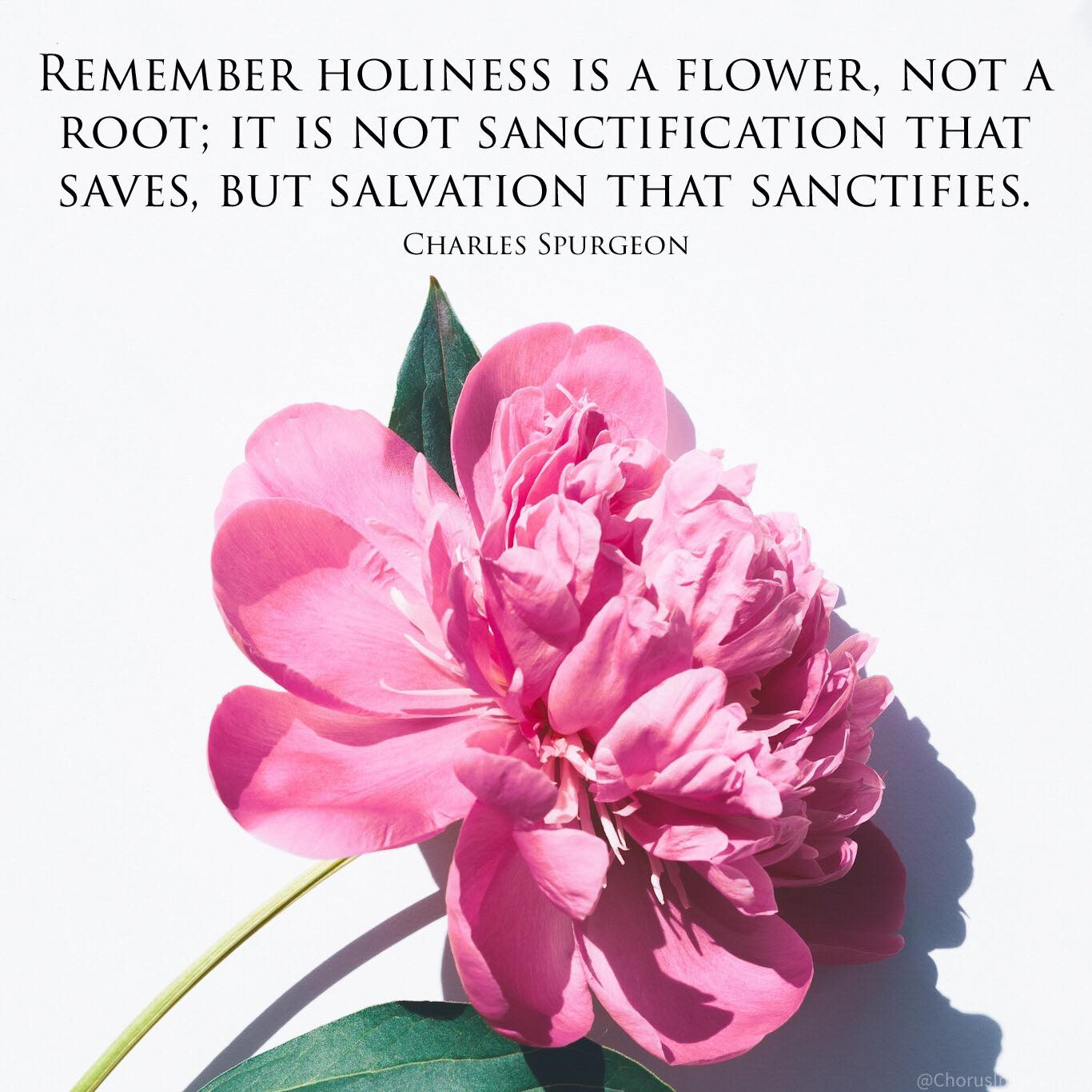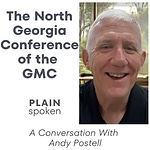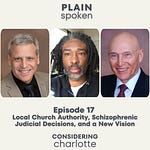“Biggest Denominational Split Ever”
I recently published a piece on the New York Times article on the United Methodist schism. It was an attempt on the part of the author, Ruth Graham, to explain to an international audience the nature of “the biggest denominational split ever,” as she quoted a political scientist named Ryan Burge having said.
This quote was somewhat vindicating for those of us who were scoffed at by institutional leadership only a year ago when we foresaw a huge falling out. Bishops and influential liberal pastors alike refused to believe that many would be interested in leaving. When it became clear that many were, in fact, aiming to leave, the institution harpooned ¶2548.2 in the Book of Discipline so that only the costly and convoluted process of ¶2553 could be utilized for exit. Some conferences like South Carolina and West Virginia found even that too distasteful and chose instead to only utilize ¶2549, which simply closes churches rather than noting them as having disaffiliated.
The concern here seems to have been legitimating what the world might otherwise call a schism. I suspect that is what is also behind the institution’s refusal to acknowledge the Global Methodist Church as a valid denominational entity, evening threatening the health benefits of retired UM clergy who might otherwise choose to align with them. If the UMC leadership can delegitimate both the disaffiliation path and the primary body to which disaffiliating churches then flock towards, then they can rest in denial that they are responsible for “the biggest denominational split ever.” Denial is a powerful drug.
Blaming it on the Gays
Rather than blame tone-deaf and dysfunctional institutional leadership as I and many others have done publicly, Graham instead sums it up thus: “At issue for Methodists is the question of ordaining and marrying L.G.B.T.Q. people, a topic that has splintered many other Protestant denominations and which Methodists have been debating for years."
I suspect her terse and unsatisfying explanation is partly because of the audience she knows the is updating (NYT skews left), and partly because she was restricted to a somewhat small article. I wonder what she would have done with a longer piece.
Is it really the gay stuff, though?
In my segment, I chose to pick on other topics instead of arguing with Graham. A viewer, a guy named Brad, wrote me to convey some disappointment about that: “As I watched this morning I noticed that the secular articles consistently say that we are separating because of "human sexuality" or "homosexuality." Am I wrong in thinking that we are separating because people continue to violate the UMC Book of Discipline? I have always thought the secular articles were painting us (traditionalists) as homophobes. Can you address this in one of your videos or am I just seeing this from the wrong perspective?"
I have two responses to this prompt that I want readers/viewers to take seriously: 1) Yes, absolutely any sane and unbiased person is deeply concerned about any institution that refuses to abide by its own shared covenant, such that one need not care at all about human sexuality to want to leave the The United Methodist Church, and 2) Critical Gender Theory is actually the touchstone issue for a great number of folks who would have otherwise tolerated continued liberal drift in The United Methodist Church.
Gays definitely aren’t the issue
First, to validate Brad, there are many churches and individuals who felt strongly that it was right to leave the UMC who did not otherwise really care about gay marriage, gay ordination, normalization of homosexuality in the shared life of the church, or the devaluation of biological gender. I have had dozens of people write me who are either gay or sympathetic with gender nonconforming persons, but who see with clear eyes just how detestable it has been for the UMC to steamroll clear majority opinion in the way that it has. One very intelligent commentator on my YouTube channel, Natasha, regularly comments that she is in support of what I would call the ‘gay agenda,’ but that the UMC is a self-evidently narcissistic and abusive system. I would call this group the practical.
There are others who are not necessarily too concerned about shifting sexual ethics and norms, but who worship at other altars that make them uncomfortable with the UMC. Churches like St. Luke’s in Oklahoma City made clear in their disaffiliation process that they are generally liberal in their leanings around sexuality, but their concern for church growth makes the UMC a bad choice for them. The United Methodist Church has been declining in American attendance and influence from the day of its inception, year over year. Moreover, the way it manages its shared funds reflects almost a penalty for churches that successfully make disciples and filters it into regions of the church (Western Jurisdiction) that are in significant decline. Those who worship at the altar of church growth saw it rightly as a moribund and sclerotic institution that would continue to be a drag on otherwise dynamic growing churches in hip urban and suburban areas. I would call this group the growers.
Some others worship at the altar of evangelical zest. They care about church growth, but what they really really care about is revival, excitement, renewal. They aren’t very concerned about sexual purity or faithfulness, but they are concerned about is the gifts of the Spirit and the excitement we see in the global charismatic movement. The mainline and bureaucratic culture of the UMC was essentially perceived as being a wet blanket on the fire of the Holy Ghost. Had the UMC been more hospitable to the gifts of the Spirit and the charismatic expressions of the faith, many of them would have been more open to staying. I would call this group the charismatics.
Between the practical, the growers, and the charismatics, surely vast numbers of people who have disaffiliated are represented. Quite possibly a large majority of those who chose to leave really did so for reasons that had very little to do with ascendant Critical Gender Theory and Cultural Marxism.
Creeping antinomianism is definitely the issue, for many (most?)
There are, however, a lot of folks who really did leave because of the self-evident victory of the Sexual Revolution in the UMC. Those of us who believe that the bible is actually a divine document and an accurate representation of the divine design of the Christian faith know that sexual conduct, identity, and expression are actually very important. Those of us who believe in damnation, sin, divine wrath…we believe that the ascendant ideology in the UMC is quite literally evil and will drag many thousands, if not millions, into hell.
When we prevailed in 2019 and the progressives simply chose to stay and the bishops chose to give them cover, we realized that this was all fake. The will of the General Conference, the functioning of the general commissions and agencies, the job of the bishops…it is all now exposed as an empty lie. The United Methodist Church has been overtaken for an ideology that sees itself as being on the right side of history and can no longer tolerate signposts of the past that have been deemed harmful to today’s victims. The elites who have been put in authority have little reservation about trampling the heritage with which they have been entrusted, the will of the denomination’s delegates, or even the gospel of Jesus Christ if it does not conform to their ideas of right. Folks like me paid a lot of money and went through a lot of mess in order to take the assets previous generations entrusted to us to use for God’s glory.
I would also be a bad public thinker if I did not acknowledge that Methodism has long been a hotbed of faithless and, frankly, demonic thought. Folks who should have been defrocked and/or dismissed from our ranks were not only tolerated, if not elevated, long before now. What transpired in recent years around LGBTQ activism was simply the straw that broke the camel’s back.
The crew with which I identify cares about good governance, reaching more people, and walking rightly with the Spirit, but before all of these things, we raise up the concern of biblical faithfulness. Without biblical faithfulness, the best-governed, fastest-growing, most exciting denomination is still an affront to God. We will choose biblical faithfulness even if it means that we will go without the amenities of other churches, without the money, without the entertainment or respect that so many crave. Even if we are relegated to being ignorant and mean folks in the back country, we choose faithfulness to the scriptures over everything else. I would call these folks the fundamentalists.
For the fundies, Graham’s NYTimes article is actually somewhat accurate. We were flabbergasted that an organization that supposedly has Christ at the center and maintains the scriptures as authoritative could at all make room for the prolonged acrimony and activism around human sexuality. While there was certainly unhappiness around lower standards around holiness, the straw that broke the camel’s back, the evidence that the UMC had lost all its moorings, was indeed the human sexuality conversation. For worldly people, sure, it makes sense that they would be confused on this issue. But for Christians? Methodists? I and many others felt like we were just taking crazy pills for years. How did everyone lose their discernment to this degree?
Of course, there are folks who do not fit neatly into any of the categories I have established here. However, I think these groups represent the vast majority of the folks who have left. You’re welcome to disagree with me in the comments. Be respectful.
So…Graham was wrong?
It is worth remembering that ¶2553 was explicitly only for those who were unhappy with the “actions or inactions” of denominational leadership around the sexual stuff in the Book of Discipline. That was the only issue under which one could rightly go through the disaffiliation process. It is true that many churches and people who did not feel very strongly about sex stuff chose to use this provision anyway as a means to exit the denomination for real reasons that were already covered.
For the practical, the growers, and the charismatics, it does indeed mischaracterize the situation to say that it was caused or precipitated by LGBTQ ordination and marriage. Lots of them didn’t really care about that stuff. To say they wanted to leave because of it lumps them in with this caricature of a homophobe that does not fit them. They stand against the homophobes, too. They just think the UMC was going against it the wrong way. When disaffiliation season began in earnest and ¶2553 was the only way out, they had to address the gender theory stuff in some capacity, but many chose to focus on other issues in much greater measure. It does seem somewhat disingenuous at this point to act as though gender theory stuff had nothing to do with disaffiliation. Of course it did. It’s just that a lot of other things also factored in that, for many churches, were a much bigger deal. The fact that they shoehorned ¶2553 to fit their agenda does not mean that the language of the provision did not matter at all. A lot of the problem was caused by folks choosing to ignore plain language. We don’t fix the problem or create a new and better dynamic by continuing to disregard the meaning of words.
The threat of holiness
One might think me antipathetic to the practical, the growers, and the charismatics, as I have called them out for being indifferent to an issue that I think requires basic biblical faithfulness while simultaneously throwing my hat in with the fundies. However, I am not without some understanding. What these groups understand is that opening the door to a frank conversation about biblical holiness goes a lot of uncomfortable directions. Holiness corrects not just homosexuality and transsexualism, but also infidelity in marriage, sexual activity in singleness, idolatry of money, idolatry of power and worldliness, prioritization of affinity groups and comfort over care of the poor and stranger, indifference to accountability and daily discipline. A great many people who call themselves Methodist do not want to revisit these areas to potentially cause more arguments and anxiety. They would rather abandon the UMC for simpler issues that can be more easily addressed without all this other fallout and potential for division. Even so, I choose the risky path for the sake of a primary concern for holiness. I honestly just don’t think it is an option to stay away from the holiness conversation. While I understand the desire to distract and talk about other stuff, this is the elephant in the room. We avoid it at our own peril.
I think a number of folks imagine that if they focus on these other things as primary, then biblical holiness will follow. I think that mentality is corrected by Jesus when he says, “Seek first the Kingdom of God and his righteousness, then all these things will be added unto you.” Holiness is of first importance; good governance, growth, and gifts of the Spirit will hopefully follow. Those things are actually of much lesser importance when held up against holiness.
The mess the Methodists are in right now
The messy direction this all now heads is in the formation of the Global Methodist Church out of those who have disaffiliated, as well as the continued attempt to function on the part of The United Methodist Church.
The reality of the GMC is that it is made up of the practical, the growers, the charismatics, and the fundamentalists, all sharing the same sandbox, but not sure how many belong to each group, or how many of our leaders have divided loyalties. I have heard it said that at least one of the bishops does not think human sexuality is a salvation issue. That leads me to believe he probably does not look at folks like me very sympathetically. Other leaders and voices are talking a lot about the gifts of the spirit or church growth, but not many are talking about reclaiming biblical holiness. It is quite possible that I stand in a minority in the newly-formed group.
The reality of the UMC is that they withheld and constrained a great number of people who fit within all of the four groups I described, including the fundamentalists. Many of these chose to stay because the language in the Book of Discipline has not yet been changed, so they cannot in good conscience leave until that happens. Others wanted desperately to leave, but their churches did not have the money to consider it, were not afforded a vote to do so, or they failed a supermajority vote (2/3 +1 was required). Many have been voting with their feet and hemorrhaging out of the UMC for decades. Many are actually staying and will continue to agitate for biblical faithfulness against the tide. I think many in UM leadership imagine these folks will continue to quietly leave. If Young Methodists for Tradition and other faithful happy warriors have anything to say about it, the UM leadership will soon be disabused of this notion.
In this midst of this are probably half of the people still in the UMC who still have pretty much no idea what is going on, why it matters, or what they can or should do about it. They have been kept ignorant by the institution, which will happily use them to gum things up in the coming years.
There are also a number of bad actors who are happy to use what influence they have to ingratiate and aggrandize themselves to the detriment of salt of the earth members. Many of these are self-evidently bad actors, but they somehow continue to have a good deal of influence.
I am simultaneously praying for both the UMC and the GMC. I would love for the remaining biblically faithful to be able to stop the effort to change the sexual ethics and silence the international voices at the UMC General Conference next year. I would also love for the GMC to take a strong countercultural stand for biblical faithfulness, even if it costs us a lot of growth and momentum. The success of biblical faithfulness in either group will depend upon 1) the discussion being had publicly and well, and 2) good faith actors being in place to act with integrity. Both of these things are only possible in supporting and engaging in the various efforts taking place right now to make sense and discern truth. Make sure to be in prayer aside thousands of others that God will choose to work with the Methodists, choosing not to give us over to ourselves despite a long history of idolatry and unfaithfulness.
Thanks for reading!
















Share this post